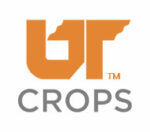LINKS
Weed Control Home Page
Weeds must be contended with yearly for Tennessee row crop agriculture to be successful. The primary weeds that many Tennessee farmers often site as the most troublesome are horseweed (sometimes referred to as marestail) and Palmer amaranth. Many other weeds are major pests in Tennessee including goosegrass, crabgrass, Johnsongrass, cocklebur, wild cotton, spotted spurge, giant ragweed, and the morningglory complex.
Tennessee farmers employ many different methods to manage weeds. Tillage, cultivation, crop planting date, row width and herbicides are all used to help manage weeds. Since the late 1990s glyphosate resistant (GR) soybeans and cotton have been used extensively. This technology allows the use of a very effective broad spectrum herbicide for weed control across a range of cropping systems. Unfortunately, due to the extensive use of glyphosate the State of Tennessee now has many weed species that are documented to be resistant to this herbicide and other herbicides as well. This website is designed to bring up to date information on weed management particularly on the many herbicide resistant weeds.







